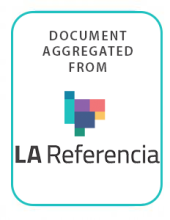Land Library
Welcome to the Land Portal Library. Explore our vast collection of open-access resources (over 74,000) including reports, journal articles, research papers, peer-reviewed publications, legal documents, videos and much more.
/ library resources
Showing items 1 through 9 of 150.The key features of the blockchain databases, such as decentralization, distribution, security, and record of the history of all transactions, create significant prospects for their application in the field of cadastre and real estate registration activities, including creation of the global real
Este artículo trata de las respuestas mediáticas a la crisis actual en la Costa Caribe de Nicaragua y los retrocesos a las luchas regionales por la autonomía y los derechos a la tierra.
The aim of this paper is to research the process of compulsory acquisition of land and its fixtures in the Trans-Adriatic Pipeline project in Albania from the perspective of the affected persons.
The topic about shared real estate and ownership of landed property has become important only in the latest years.
El proceso de formación y transformación de los recortados “derechos” coloniales a tierras de los indígenas sujetos a dominio colonial es un tema desigualmente conocido en los territorios que integraron la gobernación del Tucumán casi hasta fines del siglo XVIII.
El presente trabajo se propuso determinar, si el procedimiento de prescripción adquisitiva administrativa sobre predios rústicos establecido en el Decreto Supremo 032-2008-VIVIENDA (Reglamento del Decreto Legislativo 1089), viola o no el derecho de defensa de los propietarios involucrados.
Large-scale development projects often overlap forest areas that support the livelihoods of indigenous peoples, threatening in situ conservation strategies for the protection of biological and cultural diversity.
Globally, co-management of protected areas (PAs) offers promise in efforts to achieve ecological integrity and livelihood needs.
In this paper, we ask what the effects of migration and remittances are on land tenure, agriculture and forests, based on empirical evidence from four rural communities in Guatemala.


